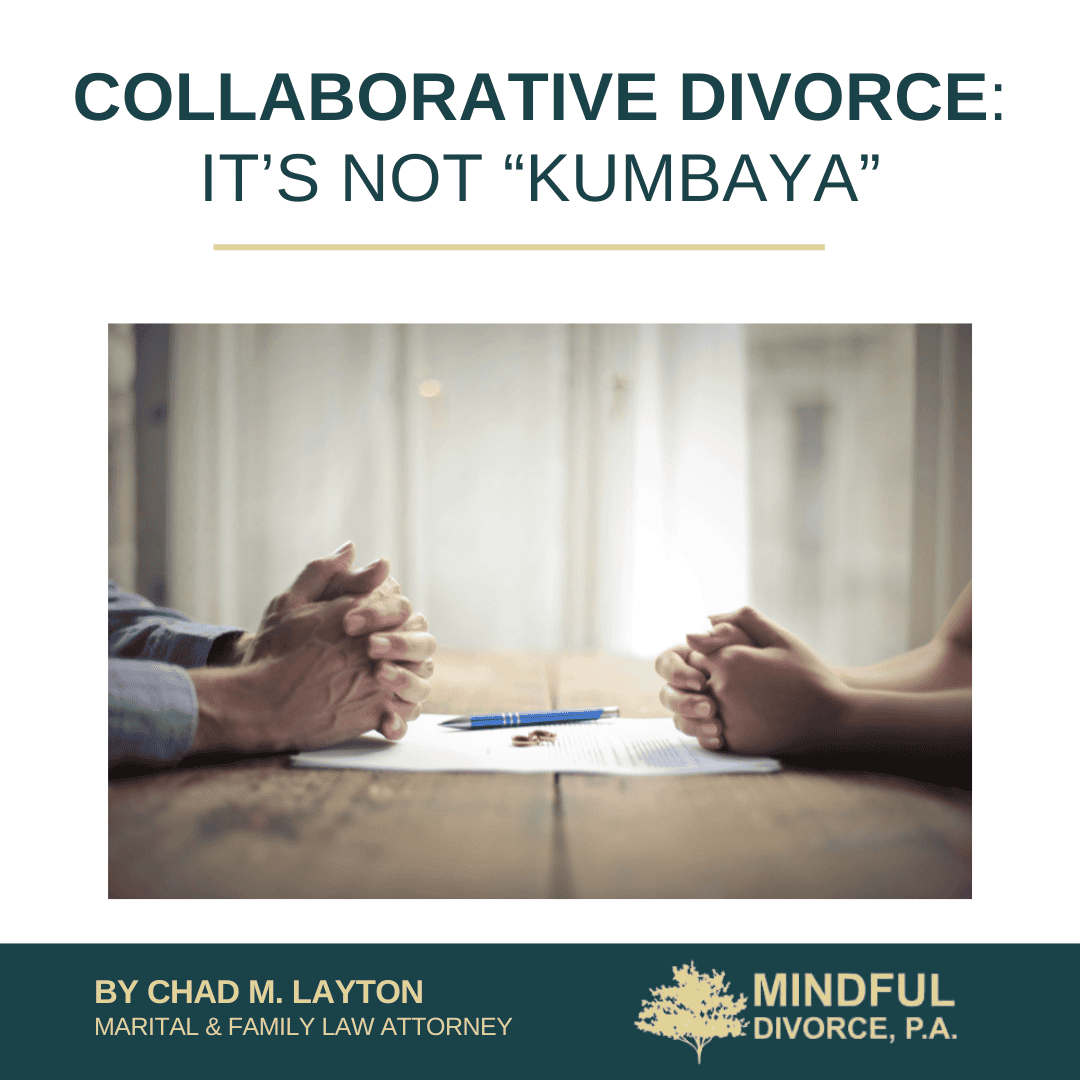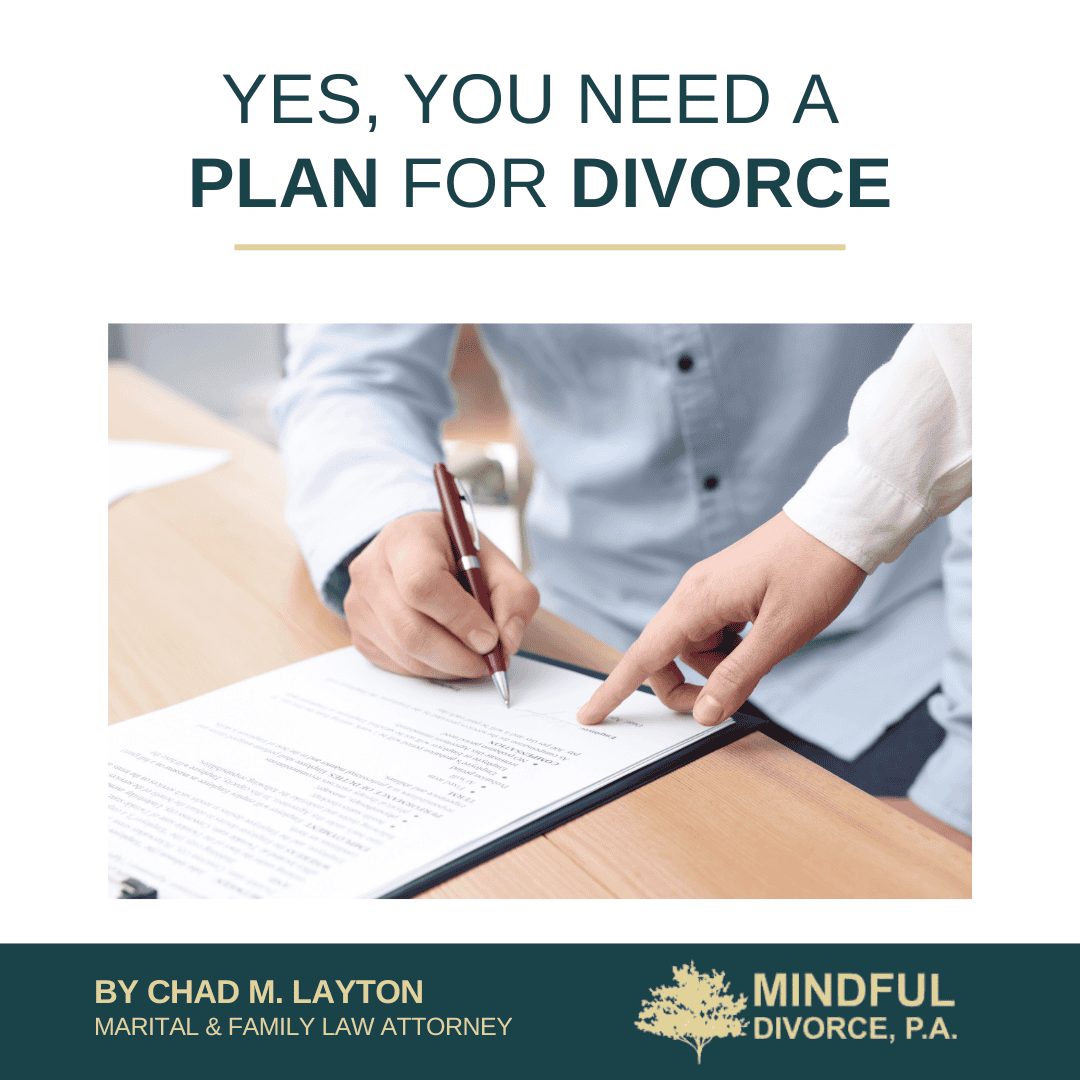
Have you ever felt that your divorce is weighing on you, both financially and emotionally? Many people share those feelings and seek a relatively calm path to resolution through a well-prepared settlement conference.
At Mindful Divorce, P.A., we focus on offering client-friendly fixed-fee services so families can discuss solutions without fueling expenses. Today, we’ll walk through the purpose of a settlement conference, help you gather the right documents, and suggest ways to keep a level head in challenging moments.
Overview of a Divorce Settlement Conference
Before examining the preparation details, let’s look at the general nature of a settlement conference. In many divorces, spouses want to avoid a courtroom fight by working toward mutual agreements on property division, child custody, support obligations, and other crucial terms. A settlement conference provides a forum to discuss these issues in a more relaxed setting.
Sometimes, a mediator or other neutral person may attend. This impartial voice can help both parties think about practical solutions. Conferences can also use more structured negotiations, so you may encounter to-the-point discussions that focus on sticking points. If spouses reach a consensus, the final step is to formalize the agreement and submit it to the court for approval.
Key Steps to Prepare for Your Settlement Conference
Getting ready involves more than just collecting papers. You’ll do best by planning carefully and prioritizing what matters most in your case. Below, we split the preparation into four main areas.
Document Preparation
Well-organized financial and personal paperwork can shape a more fruitful discussion. Start by making a checklist of documents that explain your requests. This might include:
- Income details, such as pay stubs and tax returns
- Proof of significant expenses (housing costs, health care, education)
- Asset records, including bank statements, property deeds, or retirement accounts
- Proof of any debts or ongoing liabilities
Submit these documents to your divorce attorney a few days ahead so they can share the set with the other side. It’s also wise to note the approximate value of each marital asset because that data helps both parties see the financial landscape in a clear light.
Legal Preparation
This phase involves speaking with your attorney about case goals, likely legal outcomes, and Florida’s divorce rules. It helps to review Florida statutes relevant to marital property, spousal support, and child custody—this ensures your requests line up with state guidelines. Think about whether you have room for compromise on some items or if certain factors (like child well-being) are unmovable for you.
If any court orders already exist, share those as well. Prior rulings can shape how certain matters are handled. Your attorney can then pinpoint the top legal issues and plan how to address them efficiently during the conference.
Mental and Emotional Preparation
Discussing divorce terms can bring out difficult emotions. For many couples, the greatest challenge is staying calm when memories or frustrations surface. A few readiness steps include:
- Practicing breathing exercises for a steadier demeanor
- Reflecting on stressful triggers so you can moderate your reactions
- Working with a counselor or a support group if you anticipate intense emotions
If you’re well-prepared mentally, you’ll likely make clearer decisions about property or custody. Calm thinking often paves the way for a more workable settlement.
Strategic Planning
No conference can address every small matter at once. Decide which topics have been resolved and identify the remaining roadblocks. Speak with your attorney about top priorities and potential negotiation proposals. A balanced mindset about your must-haves and your trade-offs might prevent conflicts from escalating.
Below is a sample agenda that may help structure your discussions:
| Agenda Item | Description |
| 1. Confirm Resolved Items | Review any terms already agreed upon, such as certain property divisions or holiday schedules. |
| 2. Identify Major Sticking Points | Speak about unresolved issues (custody arrangements, spousal support, etc.) and set a time for each. |
| 3. Exchange Proposals | Offer settlement ideas, including needed documents or proof to support requests. |
| 4. Discuss Counteroffers | Consider adjustments and see if smaller concessions on certain points can resolve bigger disputes. |
| 5. Summarize Progress | Recap consensus areas, note any open questions, and schedule next steps if needed. |
An outline like this keeps the meeting on track and saves time for the topics that truly matter.
What to Expect During the Conference
Once everyone sits down—often with attorneys or a mediator present—each spouse has a chance to share concerns about the divorce. Discussions might cover property division formulas, child-rearing plans, and monthly obligations. Depending on your region, some conferences can be short, while others stretch over multiple sessions. An extended process might be due to high-value assets or complex custody schedules.
During the negotiation, active listening is your best tool. Listen carefully to the other side’s points and take notes. Speak plainly rather than relying on complicated legal references, focusing on the practical bottom line. Be prepared to give up less crucial items at times, acknowledging that the other side is also looking for workable solutions.
Key Strategies for an Effective Settlement Conference
Formal litigation can be stressful, yet a settlement conference gives you a chance to resolve disputes privately, and a few strategies can make the process smoother:
- Be Respectful: Even if disagreements persist, maintain a polite stance toward the judge, all attorneys present, and any staff members. Courteous behavior encourages constructive dialogue.
- Present Facts Clearly: Use organized documents to show your claims about finances, child routines, or property. Pointing to tangible facts can persuade the other party to consider your perspective.
- Listen Thoroughly: Spend time understanding the concerns raised by your spouse. That knowledge might help you reframe your position in a way that leads to faster agreement.
- Keep Notes: Jot down what each person says about proposed arrangements or the judge’s suggestions. Those notes will come in handy later when you review the final terms.
- Stay Open to Compromise: Refusing to bend on minor issues can stall the entire settlement. Aim for a balance that works for both adults and any children involved.
Potential Outcomes and Next Steps
When spouses reach a consensus, an attorney drafts a written settlement for both to sign. This document is then submitted to the court, and once the judge approves, those terms typically become legally binding. If everything runs smoothly, you sidestep trial and conclude the process on more budget-friendly terms.
Sometimes, no resolution is reached, even after earnest talks. If that happens, consider other paths, such as mediation with a different neutral person, or proceed to a formal trial. Keep in mind that an unsuccessful conference does not equate to failure. You may simply need more time or more detailed financial evidence before an agreement can be formed. Many couples find that an initial attempt at settlement, even if incomplete, lays the groundwork for finalizing deals later.
Need Assistance with Your Divorce Settlement? Contact Mindful Divorce, P.A.
We understand how stressful it can be when it feels like your future is held up by unresolved divorce issues. At Mindful Divorce, P.A., we’re here to simplify the process with transparent, fixed-fee schedules that help you focus on life beyond divorce.
Call us at 561-537-8227 or visit our Contact Us page for guidance about your settlement conference. We stand ready to offer friendly, cost-conscious support so you can pursue a plan that fits your goals. We look forward to helping you move forward with peace of mind.



